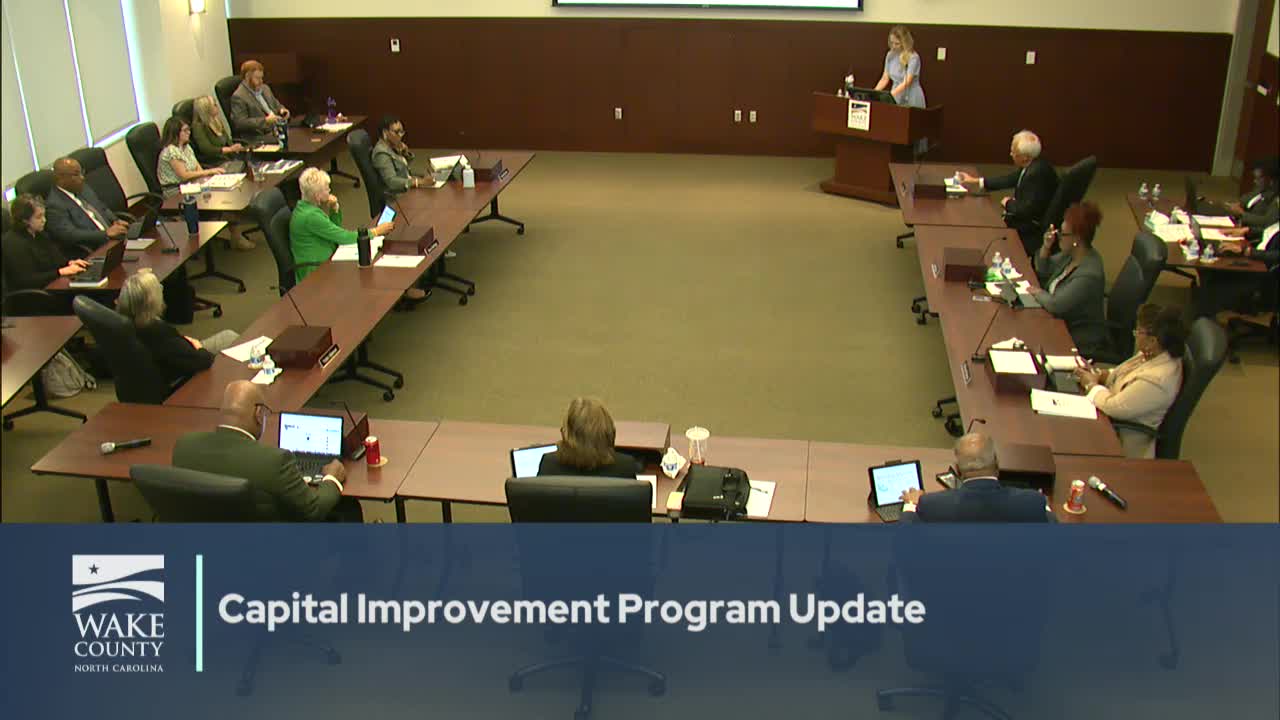Wake County staff warn of construction cost pressures, long lead times and bond-market uncertainty as CIP is finalized
Get AI-powered insights, summaries, and transcripts
Subscribe
Summary
County budget staff and the finance director told commissioners that construction labor shortages, tariffs and long equipment lead times are affecting capital cost estimates and that federal policy changes to tax-exempt financing could materially raise borrowing costs.
Wake County officials on April 7 flagged several economic and market risks that could affect capital project costs and the county's debt strategy.
Budget manager Molly Marcarelli told commissioners that construction market conditions — including strong regional demand for labor, continued inflation in mechanical and electrical equipment prices, and long lead times for specialized equipment such as generators — are factored into project cost baselines and escalation assumptions. "Mechanical and electrical equipment prices are still forecasted to increase as demand for not just the skilled labor, but also these types of equipment remains high," Marcarelli said, and she noted generator lead times can stretch two to three years.
Commissioners pressed staff for details about partnerships with Wake Tech and workforce training to address skilled labor shortages; Marcarelli said Wake Tech would present its capital program and could address workforce questions at an upcoming May work session.
Todd Taylor, the county’s director of finance, described how the county uses a debt-and-capital model to evaluate affordability and to space out bond referenda and debt issuance. Taylor stressed the need to preserve capacity within the model to respond to market changes and uncertainties, including changes in tariffs and potential shifts in the bond market. "What we can control is, being diligent in our financial planning and ensuring that we've got adequate capacity to account for, the unknown," Taylor said. He added that the county planned to sell bonds the day after the work session and that demand for the county's AAA-rated debt remained adequate despite volatility.
Both staff and commissioners raised concerns about federal-policy-level risks: staff noted ongoing discussions in Washington about the future of tax-exempt municipal financing and said eliminating or limiting tax-exempt bonds would raise borrowing costs materially. A commissioner with municipal finance experience warned that removing tax-exempt financing would be a large national shock for local infrastructure finance and urged robust federal advocacy.
County staff said they will continue to monitor construction and market indicators, adjust escalation assumptions as needed, and maintain reserves in the debt model to allow for volatility in interest rates or project costs.
